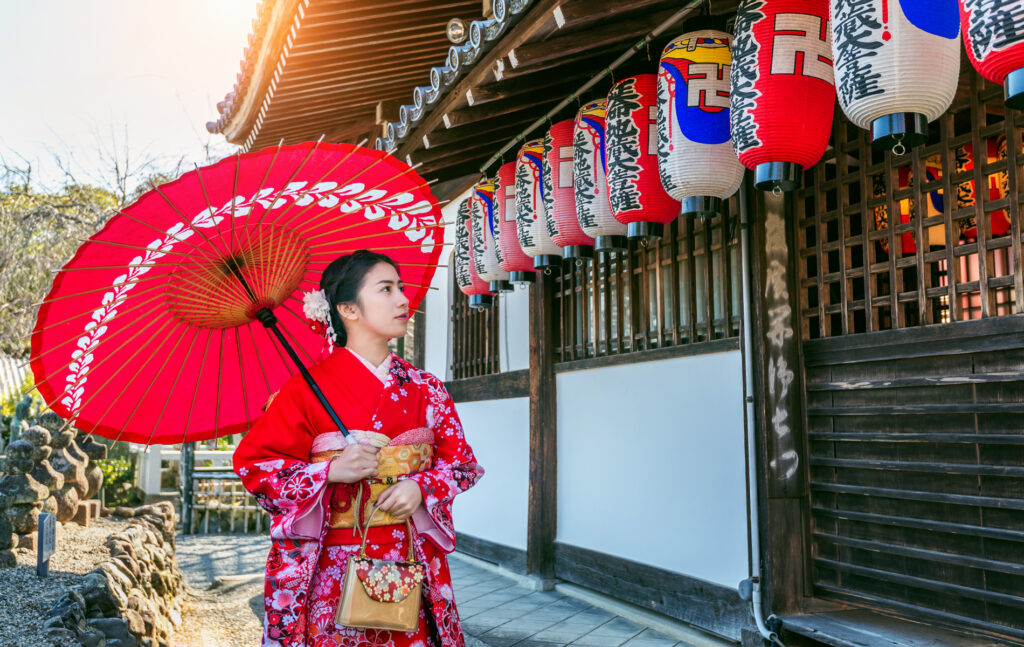Culture in Japan

Japan has a rich and multifaceted culture that has evolved over thousands of years. It combines ancient traditions with modern influences, creating a unique and distinct identity. Here are some key aspects of Japanese culture:
Language:
The official language is Japanese, and the writing system uses a combination of Kanji (characters adapted from Chinese), Hiragana, and Katakana. Politeness and respect are integral aspects of Japanese communication.
Religion:
Shinto and Buddhism are the two main religions in Japan, and many Japanese practice a combination of both. Shinto is deeply rooted in nature and involves rituals at shrines, while Buddhism contributes to various cultural practices.
Arts and Aesthetics:
Traditional Arts: Japan is renowned for traditional arts such as tea ceremony (Sadō or Chanoyu), calligraphy (Shodō), flower arranging (Ikebana), and traditional theater forms like Noh and Kabuki.
Visual Arts: Japanese art includes traditional ink painting (Sumi-e), woodblock printing (Ukiyo-e), and contemporary art influenced by both traditional and global styles.
Architecture:
Traditional Japanese architecture, characterized by wooden structures and tatami mat flooring, coexists with modern urban architecture. Notable examples include ancient temples, shrines, and modern structures like Tokyo’s skyline.
Cuisine:
Japanese cuisine, known as Washoku, emphasizes seasonal ingredients and presentation. Sushi, sashimi, ramen, tempura, and traditional kaiseki multi-course meals are iconic elements of Japanese food culture.
Festivals:
Numerous festivals are celebrated throughout the year, often rooted in Shinto or Buddhist traditions. Examples include cherry blossom festivals (Hanami), Gion Matsuri in Kyoto, and Nebuta Matsuri in Aomori.
Ceremonial Practices:
Rituals and ceremonies are integral to Japanese culture. These include coming-of-age ceremonies (Seijin no Hi), New Year’s celebrations, and the observance of traditional festivals.
Technology and Innovation:
Japan is a global leader in technology and innovation. The country has a strong reputation for advancements in electronics, robotics, and transportation.
Pop Culture:
Japan has a significant influence on global pop culture. Anime, manga, J-Pop, and video games have gained immense popularity worldwide. Harajuku fashion and cosplay are also notable aspects of Japanese pop culture.
Etiquette and Social Customs:
Japanese society places a high value on etiquette, respect, and social harmony. Bowing is a common form of greeting, and there are specific customs related to gift-giving, dining, and communication.
Natural Beauty and Gardens:
Japanese gardens are designed to harmonize with nature and often feature elements like stone lanterns, koi ponds, and meticulously manicured landscapes. Cherry blossoms (Sakura) are particularly celebrated, symbolizing the fleeting beauty of life.
Japan’s culture is a fascinating blend of tradition and modernity, and its global influence continues to grow in various fields. The Japanese people take pride in their cultural heritage while embracing innovation and adaptation to the changing world.
